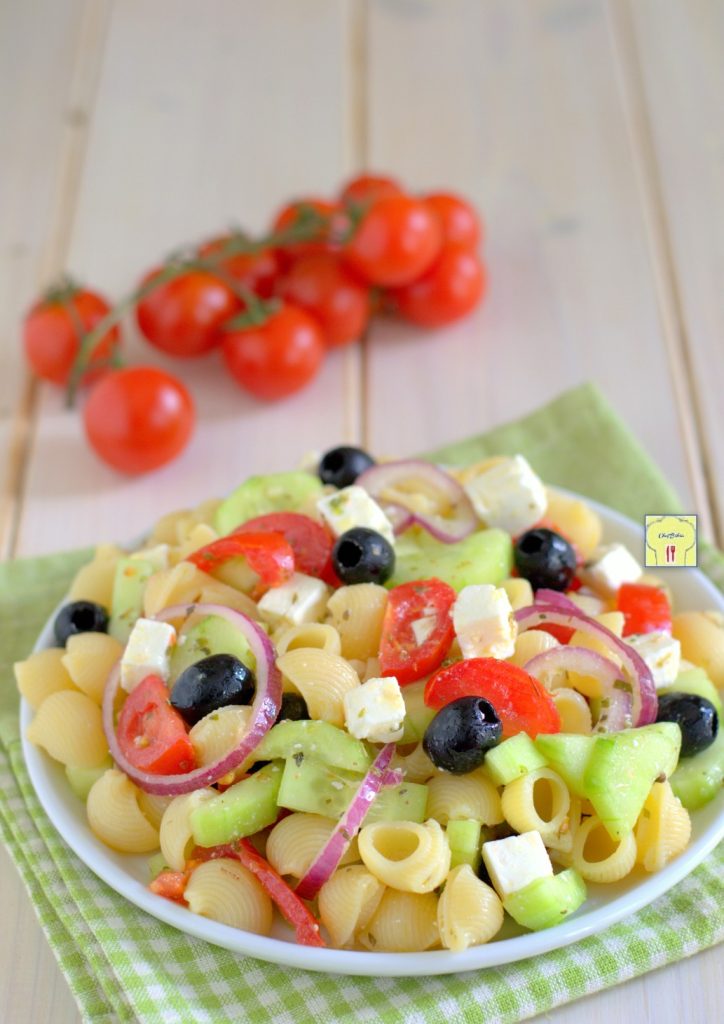Greek cold pasta is a tasty pasta salad, easy and quick to prepare.
This pasta is seasoned with feta, cherry tomatoes, cucumbers, and black olives, similar to the classic Greek salad, full of flavor and perfect for the hottest days of summer, savory and easy to make.
Read how to make Greek cold pasta with the easy and quick recipe below, as usual, right after the photo 😉
You might also be interested in the following recipes:

- Difficulty: Easy
- Cost: Cheap
- Preparation time: 10 Minutes
- Portions: 4
- Cooking methods: Stovetop
- Cuisine: Italian
- Seasonality: Summer
Ingredients
- 11 oz pasta
- 1.5 cups cherry tomatoes
- 5.3 oz feta
- 5.3 oz black olives
- 1 cucumber
- Half red onion
- oregano
- extra virgin olive oil
- salt
Preparation of Greek Cold Pasta
Cook the pasta al dente in plenty of salted boiling water.
Meanwhile, prepare the dressing.
Wash the cherry tomatoes and cut them into wedges, peel the cucumber and dice it, clean the onion and slice it thinly.Gather everything in a large bowl, add the black olives, extra virgin olive oil, oregano, and salt, and mix.
Cut the feta into cubes.
When the pasta is ready, drain it and run it under cold water to stop the cooking.Add it to the dressing, mix thoroughly, and then add the feta cubes, stirring gently to avoid breaking them.
Store your Greek cold pasta in the refrigerator until it’s time to serve it.
Notes
Don’t miss the collection Cold Pasta 7 Irresistible Recipes with many fresh and tasty pasta salad ideas perfect for summer: you can find it directly by clicking HERE.
For all of Chez Bibia’s First Course recipes, just click HERE.
If you want to stay updated on all my recipes, without missing any more of them, follow me also on my Facebook page, which you can find directly by clicking HERE.

